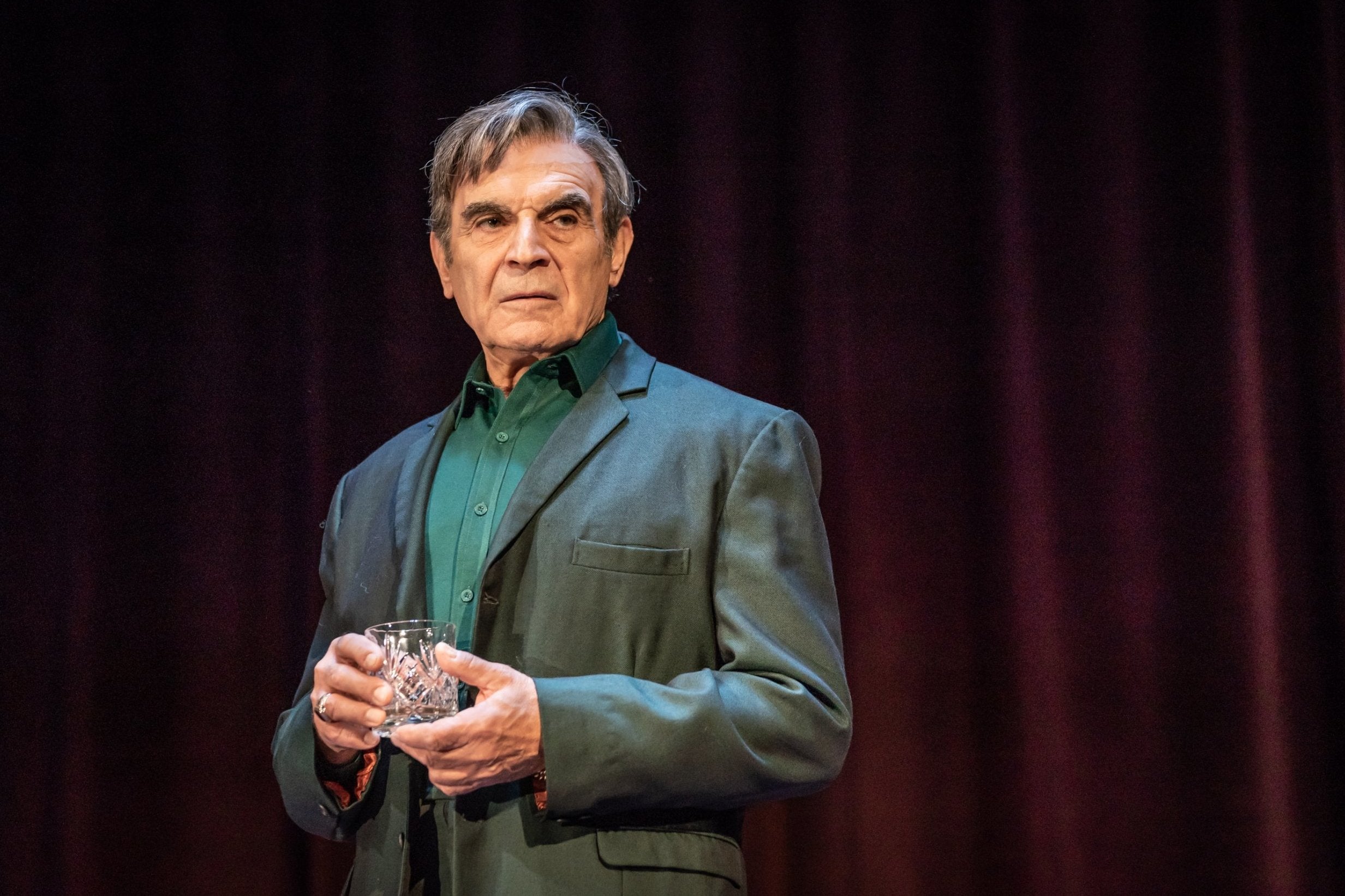Pinter at the Pinter, Harold Pinter Theatre, London review: A remarkable endeavour
A rolling season of one-act plays by Harold Pinter sees a star-studded lineup of acting talent

Your support helps us to tell the story
From reproductive rights to climate change to Big Tech, The Independent is on the ground when the story is developing. Whether it's investigating the financials of Elon Musk's pro-Trump PAC or producing our latest documentary, 'The A Word', which shines a light on the American women fighting for reproductive rights, we know how important it is to parse out the facts from the messaging.
At such a critical moment in US history, we need reporters on the ground. Your donation allows us to keep sending journalists to speak to both sides of the story.
The Independent is trusted by Americans across the entire political spectrum. And unlike many other quality news outlets, we choose not to lock Americans out of our reporting and analysis with paywalls. We believe quality journalism should be available to everyone, paid for by those who can afford it.
Your support makes all the difference.Jamie Lloyd’s rolling season of one-act plays by Harold Pinter is admirably ambitious. He’s grouped 19 pieces into seven programmes and has assembled a star-studded lineup of acting talent – including Mark Rylance, Penelope Wilton, Janie Dee, Tamsin Greig, Martin Freeman, Michael Gambon and John Simm.
Many of the performers who are to appear in later productions had gathered to watch the two opening compilations which were unveiled this week.
The proceedings begin with Pinter at his most overtly political. Directed with harrowing exactitude, many of these pieces are about torture and they bruisingly demonstrate that no dramatist reacted with a more sensitised outrage to the warped dynamic between torturer and victim.
Pinter had shown this early in the bullying banter with which Goldberg and McCann interrogate and brainwash the hapless Stanley in his second full-length play The Birthday Party (1957). By the time he came to write One For the Road (1984), New World Order (1991) and Mountain Language (1988), his anxieties about the fragility of democracy and his contempt for US support for “every right-wing military dictatorship in the world” had changed his priorities.
There was no ambiguity or mystery about the provenance of the thugs who want to “keep the world clean for democracy (or whatever)”, but a beady precision about the torturer’s tactics (the humiliation of toying, sadistic levity) and shrewd speculation about the psychology of wanting to be subsumed into the bogus family of the state.
One for the Road comes across in this production as a gutting masterpiece. Antony Sher is brilliant as the cultured, ostensibly convivial torturer, silkily exulting in his total power over the family of his victim (excellent Paapa Essiedu) while plying himself with countless whiskies in a repeated mock-show of having “one for the road”. Lethal.
The proceedings in Part One get off to a deceptively cheerful start. To the strains of “Rule Britannia”, the audience is caught up in a dense blizzard of red, white and blue ticker tape and a twinkling Jonjo O’Neill steps to the lectern to give his first press conference as minister of culture. Is there conflict of interest, he’s asked, that his previous job was head of the Secret Police? Not if you define “critical dissent” as he does, in his jovially threatening way.
The compilation comprises Pinter’s poetry and snatches of his recorded voice talking about politics. The material varies in quality. A recently discovered sketch about a dimwit US president who nukes London through ignorance and incompetence becomes an occasion for Jon Culshaw to gives us his very funny Trump. It’s entertaining but lightweight, and oh how it makes you feels his loss. The separation of immigrant parents and children at the border might have inspired a play of the angry acuity of Mountain Language.

Lia Williams directs Kate O’Flynn and Paapa Essiedu in very fresh, down-to-earth reappraisal of Ashes to Ashes (1996), a difficult play in which a woman talks to her pestering lover about a past, sado-masochistic affair and dredges from her mind archetypal images of the death camps. I found Pinter 2 enjoyable but much less challenging.
The Lover and The Collection were both first seen on television in the early Sixties. In the former, Hayley Squires and John McMillan portray a married couple who play-act at being each other’s bit-on-the-side in the afternoons.
There’s something too mannered and under-sexed about Lloyd’s production which is strenuously played for laughs in their roseate pink house. Trust it to be the man who tries to call it quits, unable to stand his own competition.
In The Collection, Russell Tovey is blissfully funny as Bill, a louche bisexual fashion designer who finds himself lusted after by the married man who arrives unannounced to accuse him of bedding his spouse in a Leeds hotel. This has to be the campest piece Pinter ever wrote.
Hilariously waspish, toupee-wearing, and sad, David Suchet is possessive mentor to Bill whom he calls a “slum slug”; “I found him in a slum by accident. Just happened to be a in slum and there he was”. Murmur it ever so quietly, but it makes you wish for the sitcom.
Pinter at the Pinter looks like a remarkable endeavour and it has a cool, youthful vibe. Next up, Mark Rylance will take part in a Q and A and will twice deliver Pinter’s Nobel lecture in aid of Stop the War.
To 23 February 2019, 0844 871 7622, pinteratthepinter.com
Join our commenting forum
Join thought-provoking conversations, follow other Independent readers and see their replies
Comments